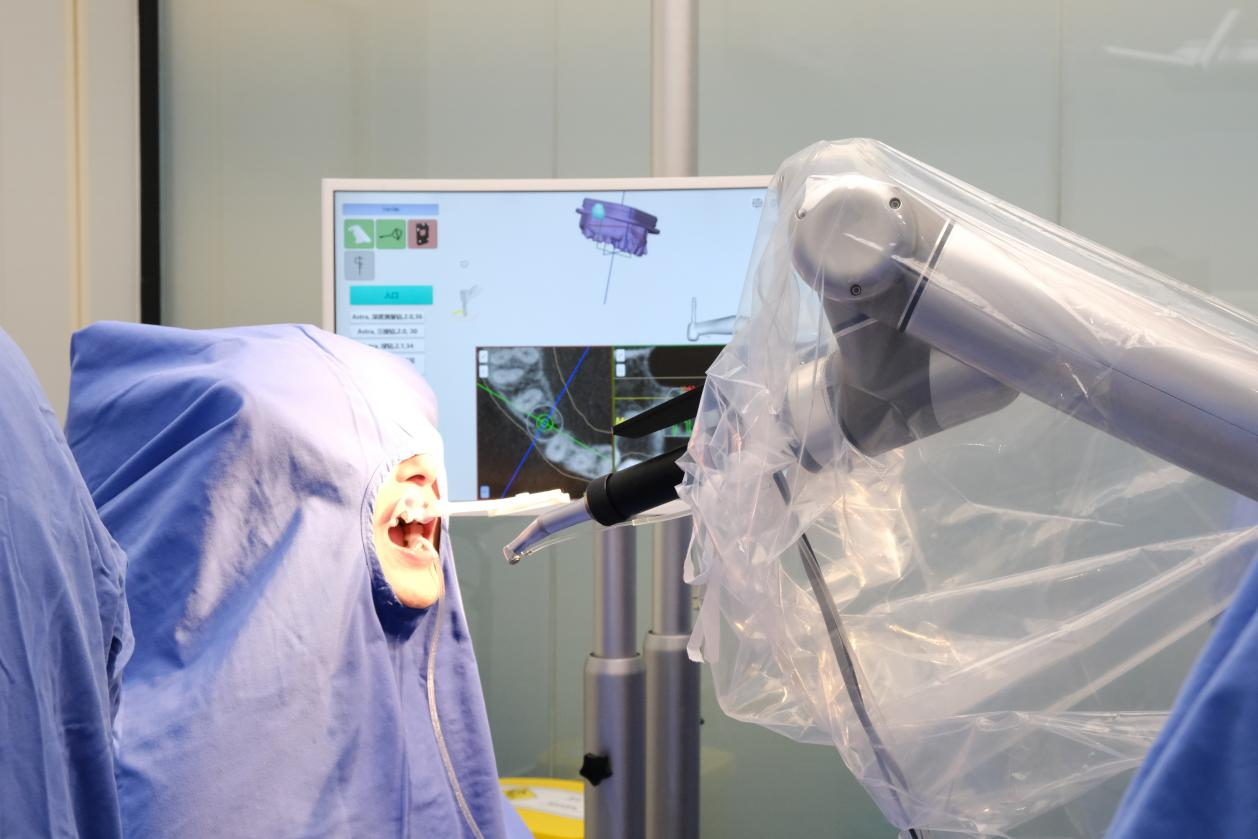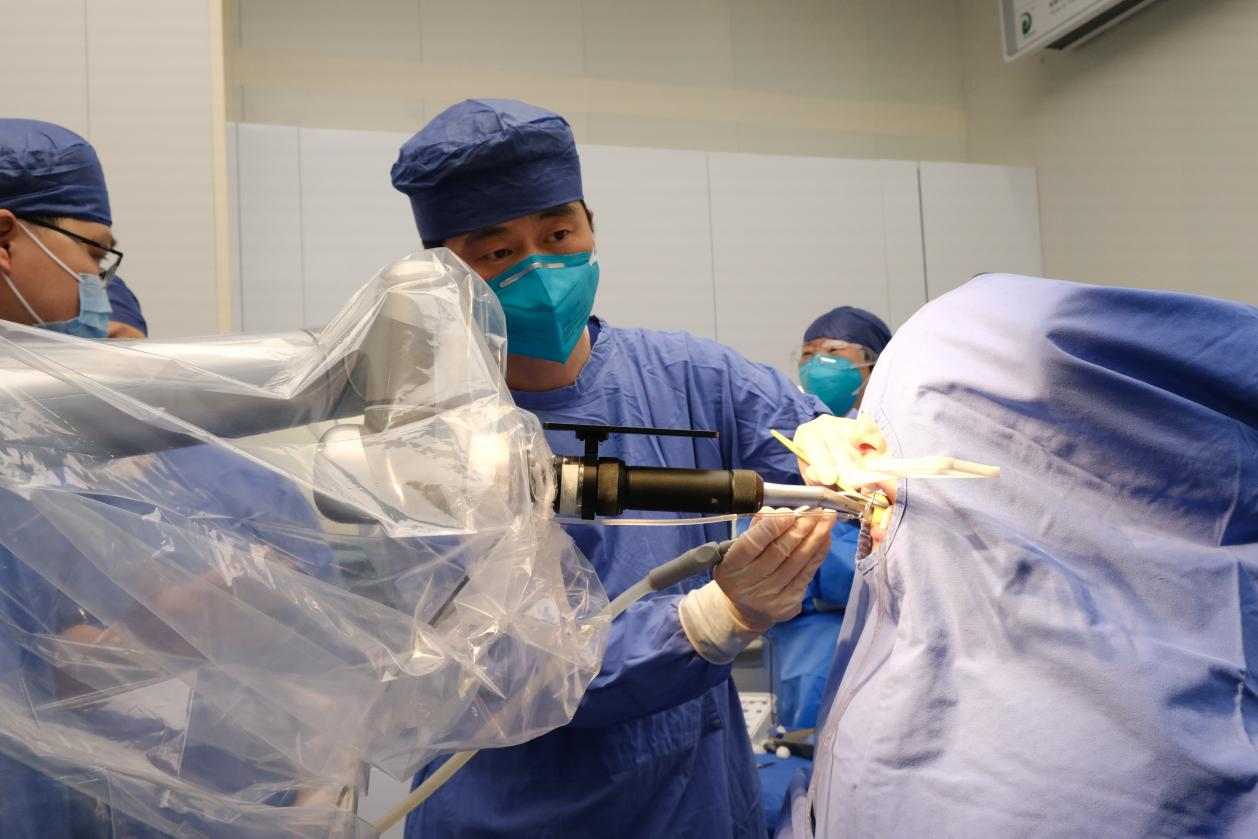Stomatology welcomes "black technology"!
On July 25, Xu Yubo and Wang Shaohai from the Stomatological Center of Dongfang Hospital affiliated to Tongji University completed a special dental implant repair for Ms. Zhang, because it was the first dental implant operation completed by an autonomous robot in Shanghai. Dental implants are generally completed in two stages. One root is planted in the first stage; A crown can only be used after the second stage of re implantation. On February 16 this year, Ms. Zhang completed the first phase of robotic dental implantation at the Dental Center of Dongfang Hospital affiliated to Tongji University. Due to the delay of the epidemic situation, she has successfully completed the second phase. From that day on, Ms. Zhang finally regained a healthy, beautiful and complete tooth.
Five years ago, Ms. Zhang lost an anterior tooth due to serious dental disease. Because traditional dental implants rely on doctors' years of clinical experience, but Ms. Zhang's small gap between missing teeth, high surgical risk and other obstacles have caused her to hesitate to go for dental implants, which has also become a problem for Ms. Zhang, who has a good face, to "open her mouth".
In February this year, Ms. Zhang came to the stomatology center to try the "black technology" of stomatology - robot dental implant technology after learning that the Oriental Hospital affiliated to Tongji University has the latest and more accurate dental implant technology. After knowing Ms. Zhang's situation, the center directors Xu Yubo and Wang Shaohai formulated a detailed robot tooth planting plan for her.
During the operation, doctors do not use scalpels, but gently control the "robot" button. On the display screen behind them, rows of data are changing with the movement of the robot arm. The robot's "arm" works accurately and quickly according to the planned path, and implants the implant in the predetermined area according to the pre designed position, angle and depth. Although the robot surgery technology is accurate, minimally invasive and efficient, Ms. Zhang is still a little nervous because of the new technology, and her head cannot help moving slightly because of nervousness. At this time, the robot system immediately makes a follow-up adjustment, and the whole process is consistent and accurate.
Before the operation, all the imaging data of Ms. Zhang have been imported into the robot system in advance; Apart from the complicated early robot debugging, the first stage operation was completed for Ms. Zhang in just 4-5 minutes, from accurate location to precise implantation. When she told Ms. Zhang that the operation had been completed, she was stunned and surprised, "To tell the truth, I didn't know the operation was going on or completed, but it was all right at once, and I was completely nervous." This carefully prepared operation has solved her problems for many years, and has also increased her confidence in the robot's participation in medical work - the operation time is short, there is no suture, there is little bleeding, and there is almost no wound. She said that this "black technology" is amazing. After a long wait for the root of her tooth to stabilize for several months, the second step of wearing her tooth recently was completed, which officially announced that Ms. Zhang had regained her healthy teeth.
"There are a large number of invisible patients with tooth loss. Epidemiological investigation shows that there are about 400 million patients with tooth loss in China due to disease, age or accident." Xu Yubo, director of the Stomatological Center, said that robot surgery is different from traditional surgery technology, which requires our doctors not only to have traditional dental implant technology, but also to have digital technology, mechanical engineering technology and other composite skills. " At present, the popularization of "black technology" is still difficult, but the stomatology center of Dongfang Hospital affiliated to Tongji University has ushered in the robot era. I believe that in the near future, it will make clinical stomatology "even more powerful" and will benefit more dental patients.

Next
Related News






